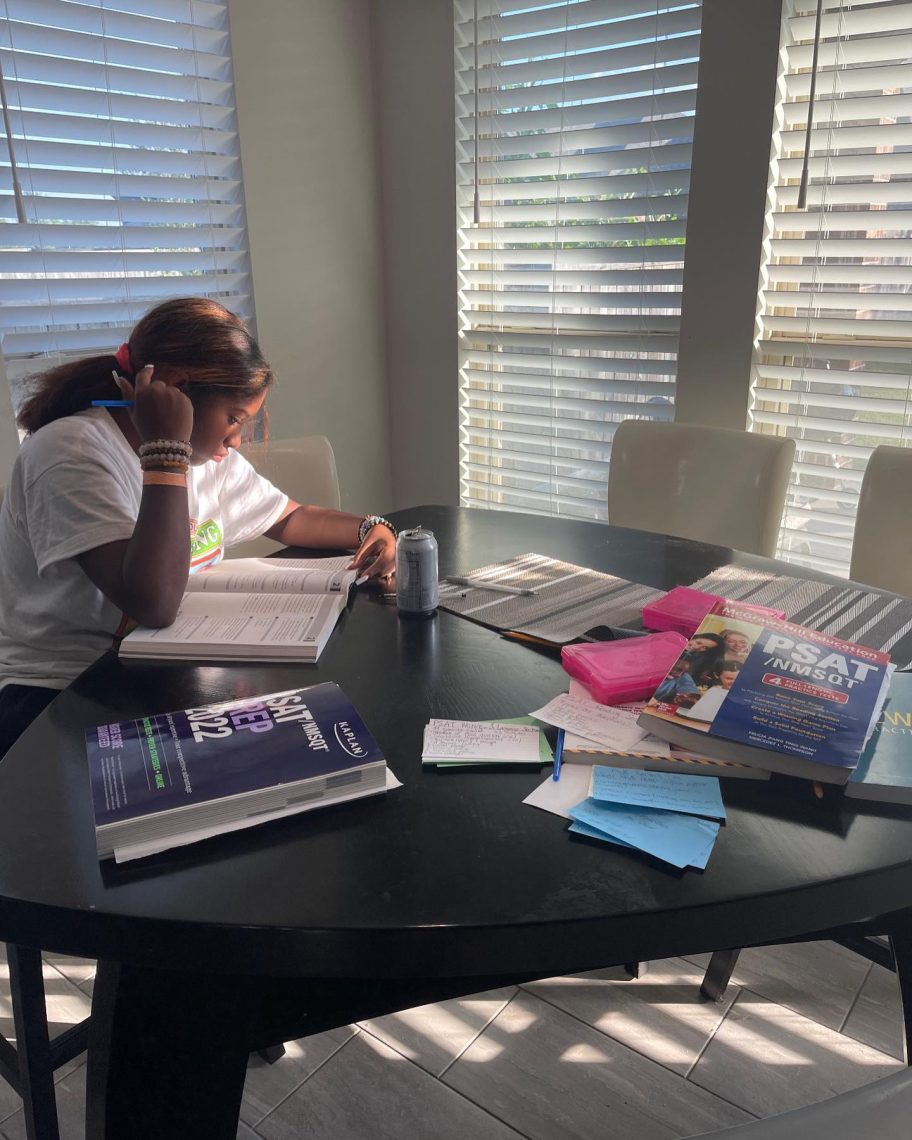Here’s my daughter, Alexis, studying for the PSAT.

As with all 3 of my kids, I was her tutor, using my knowledge + study guides.
Private test prep?
Kaplan: up to $1,300, for unlimited hours online.
Princeton Review: up to $2,700, for 18 hrs.
So I saved money, and spent my time. I’m cool with that. ![]()
But Imagine millions of parents who didn’t go to college or lack the knowledge to be their kids’ writing or math tutors?
Or parents too busy w/ work & other obligations.
Or parents who can’t afford private test prep for the PSAT & SAT exams?
Yes, there are cheaper PSAT test prep options & free online stuff.
READ: 4 HIDDEN COLLEGE COSTS EVERY PARENT SHOULD KNOW
But even good students may need more.
My oldest daughter, a National Merit Scholar, scored top 1% on her PSAT. She graduated in 2018 from UT Austin.
My son tested well too & graduates in December from NC State.
Since it’s my 3rd time doing PSAT & SAT test prep with my kids, I’ve seen many changes.
![]() One upside: tests are now WAY less important!
One upside: tests are now WAY less important!
![]() 1,800+ colleges are now Test-Optional & don’t require SAT or ACT scores, per FairTest (see their list of test-optional schools).
1,800+ colleges are now Test-Optional & don’t require SAT or ACT scores, per FairTest (see their list of test-optional schools).
![]() In CA — where all public colleges are test-free — the # of test-takers
In CA — where all public colleges are test-free — the # of test-takers ![]() by 62% from 2019 to 2022.
by 62% from 2019 to 2022.
![]() Nationwide, SAT test taking is down 21%.
Nationwide, SAT test taking is down 21%.
![]() All 8 Ivy League schools are now test optional.
All 8 Ivy League schools are now test optional.
Colleges know that grades, essays, activities, etc. all predict college success better than PSAT/SAT scores.
Data also show dropping SAT/ACT requirements:
![]() helps get more diverse students
helps get more diverse students
![]() doesn’t reduce student body quality or lower standards
doesn’t reduce student body quality or lower standards
Now for the downside:
The level of competition for college admissions is insane.
I know the environment based on personal & professional experience, having written a two-book series, College Secrets.
As a parent, I’d be lying if I said I don’t want to give my kids every advantage.
And as a Black mom, to be honest, I’ve taught my children: you have to be twice as good to get half as much in this society.
I wish the system was different.
But tests like the PSAT, SAT and ACT really say more about a family’s income and resources — vs the merit and potential of the student. ![]()
![]()
In short: rich kids can get paid tutors, college coaches, etc.
Other kids lack such advantages.










